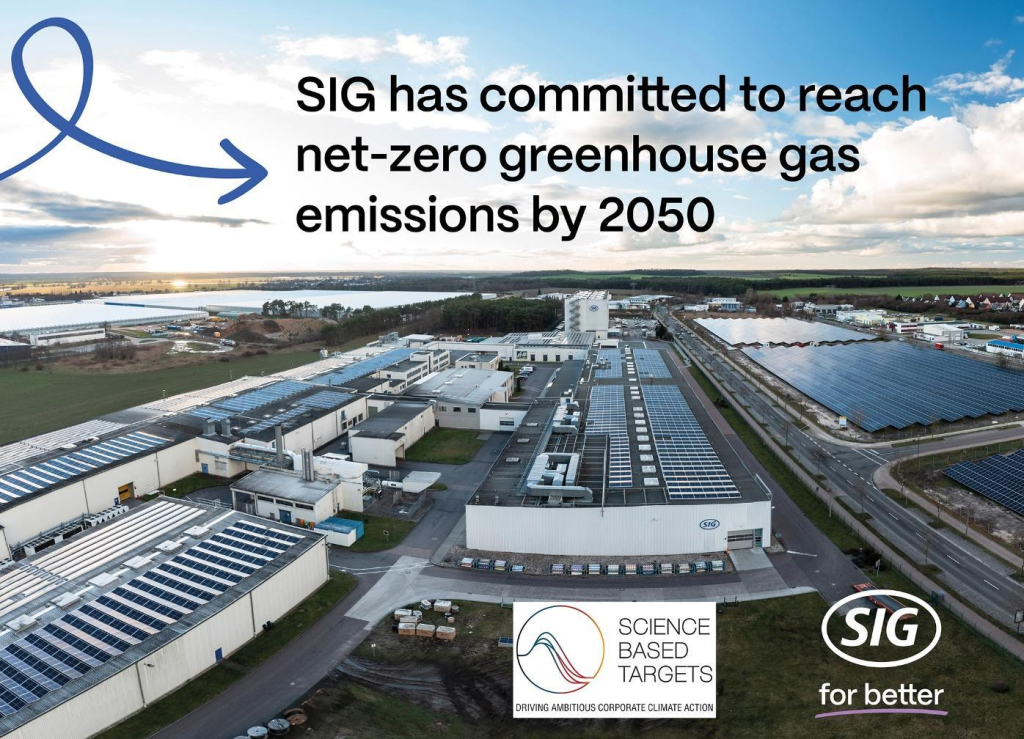SIG has been granted approval for its group-wide Net-Zero science-based target by the Science Based Targets initiative (SBTi).
The company has pledged to achieve net-zero greenhouse gas (GHG) emissions across its entire value chain by 2050, making it one of the first 300 companies globally to have its target validated by SBTi among the 2,000+ companies with public net-zero commitments.
Having recently marked its 170th year of operation, SIG is now setting a new series of near and long-term science-based emissions reduction targets in line with climate science.
The company’s new 2030 commitments include a 42% absolute reduction of scope 1 and 2 GHG emissions, a transition to 100% renewable electricity by 2030, and a 51.6% reduction of scope 3 GHG emissions per liter packed.
Furthermore, SIG’s more ambitious long-term 2050 targets involve a 90% absolute reduction of scope 1 and 2 GHG emissions and a 97% reduction of scope 3 GHG emissions per liter packed.
Samuel Sigrist, CEO at SIG, expressed their dedication to decarbonizing their operations and value chain, emphasizing that their new targets exceed their previous GHG reduction goals and have received positive feedback from stakeholders.
Angela Lu, president and general manager, Asia Pacific South at SIG, added that the company’s journey toward becoming a net-positive business includes creating packaging solutions that give back to people and the planet more than they take out.
To contribute to global efforts in mitigating climate change impacts and achieving the Paris Agreement goals of limiting global warming to 1.5°C, SIG is committed to employing a robust, scientific framework, as ensured by the SBTi’s approval process.
SIG is actively reducing operational emissions through its 100% renewable electricity commitment, on-site solar installations, and exploration of low-carbon energy sources. Notably, its Rayong Plant in Thailand was the region’s first solar roof installation, significantly offsetting CO2 emissions since 2018.
The company’s products also play a vital role in reducing emissions across the value chain (scope 3) due to the materials used. Going forward, SIG aims to use less aluminum foil in its aseptic carton packs, collaborate with suppliers to reduce emissions, enhance energy efficiency with new filling lines, and improve the collection and recycling of used packaging.















